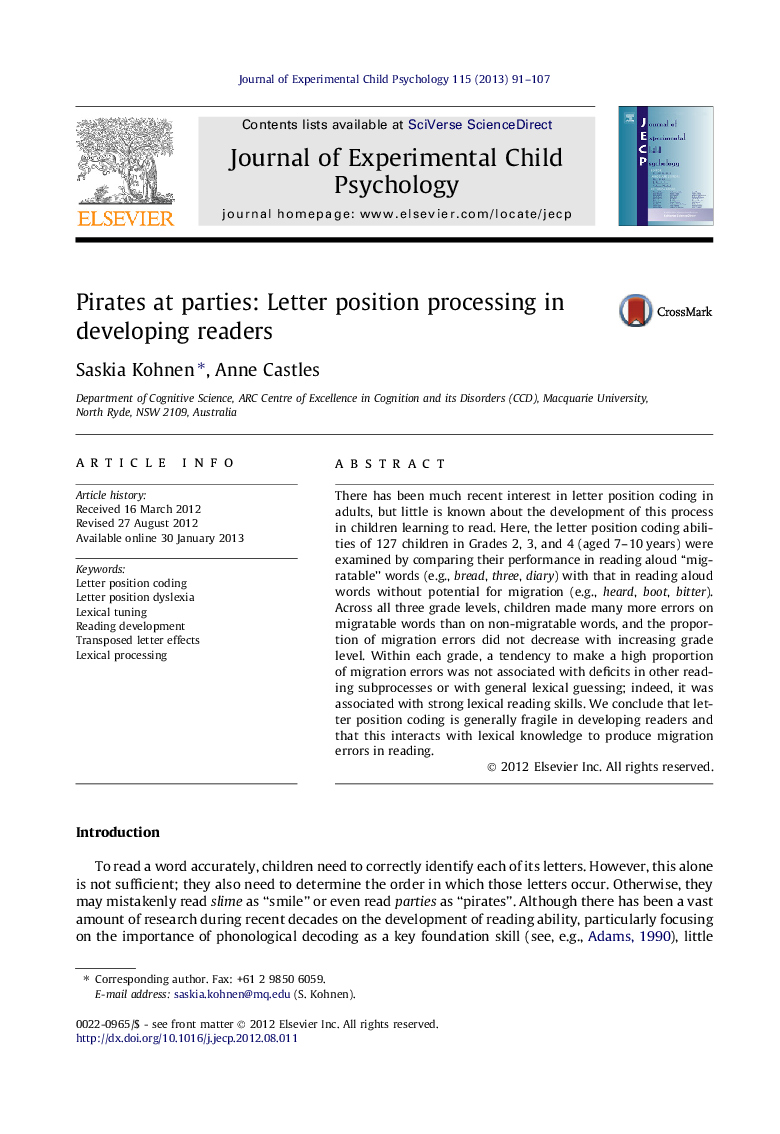| Article ID | Journal | Published Year | Pages | File Type |
|---|---|---|---|---|
| 918194 | Journal of Experimental Child Psychology | 2013 | 17 Pages |
There has been much recent interest in letter position coding in adults, but little is known about the development of this process in children learning to read. Here, the letter position coding abilities of 127 children in Grades 2, 3, and 4 (aged 7–10 years) were examined by comparing their performance in reading aloud “migratable” words (e.g., bread, three, diary) with that in reading aloud words without potential for migration (e.g., heard, boot, bitter). Across all three grade levels, children made many more errors on migratable words than on non-migratable words, and the proportion of migration errors did not decrease with increasing grade level. Within each grade, a tendency to make a high proportion of migration errors was not associated with deficits in other reading subprocesses or with general lexical guessing; indeed, it was associated with strong lexical reading skills. We conclude that letter position coding is generally fragile in developing readers and that this interacts with lexical knowledge to produce migration errors in reading.
► A reading aloud experiment with migratable words (from–form) in developing readers. ► Children made many more errors on migratable than on nonmigratable words. ► The proportion of migration errors (blot as “bolt”) did not decrease across grades. ► High proportions of migration errors were associated with strong lexical skills. ► Letter–position coding interacts with lexical knowledge to produce migration errors.
